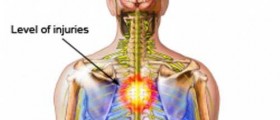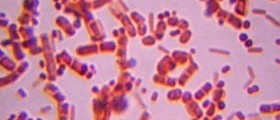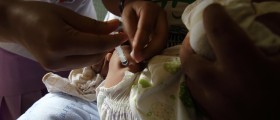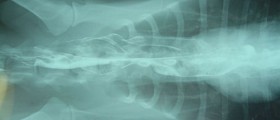
Botulism, also known as botulinus intoxication, is a severe medical condition caused by the botulinum toxin, which is normally produced by the bacterium Clostridium botulinum. This serious illness may cause flaccid paralysis of muscles. Botulism develops either when the toxin enters patient’s body or if the Clostridium botulinum microorganisms colonize the patient’s intestines.
If the bacterium is present in the intestines, they may release the toxin into the patient’s body. Otherwise, patients usually ingest the toxin or it enters the body by contamination of a wound by a bacterium.Causes and forms of botulism
Botulism that occurs in young children and toddlers is known as infant botulism. This is the most frequent kind of botulism disease that is usually caused by bacterium that grows in baby’s intestinal tract. Bacterium usually gets into the baby’s intestine after the child consumes the spores of the bacteria. Most commonly, the source of bacterium spores is honey or contaminated soil. Children between the ages of two and six are considered to be at increased risk of developing infant botulism.
Food-borne botulism is another kind of botulism disease that is usually caused by canned food. Harmful Clostridium botulinum bacteria may sometimes develop inside of a food container and release dangerous toxin. Foods low in acid, such as green beans, corn and beets, are especially suitable for development of Clostridium botulinum.
Wound botulism develops if bacterium infects the wound and produces the toxin that enters the blood stream. Even the slightest injury may form a suitable ground for bacterium development. There is some evidence that people who inject heroin have increased risk of wound botulism.
Signs and symptoms of botulism
It takes approximately 12 to 36 hours to develop the first symptoms, after the toxin gets into the body. However, it generally depends on the type and cause of one’s botulism. Symptoms of wound botulism may start 10 days after the wound is infected with bacteria. Symptoms may also vary among the children and adults but they usually include difficulty to speak or swallow food, unusual weakness on both sides of the face, problems with vision, drooping eyelids, difficulty breathing and paralysis. In cases of food-borne botulism, patients may also complain about abdominal cramps, nausea and vomiting.
One of the first signs of botulism in infants is constipation. Troubles with movement and controlling the head are also visible. A child may seem to be exhausted, irritable, drooling and may have difficulty sucking or feeding. Parents may also notice weak crying and drooping eyelids. Paralysis may also be present.
It is important to recognize the symptoms of the disease at the early onset and immediately seek a medical care. Early treatment may significantly improve patient’s chances of survival.

















Your thoughts on this
Loading...